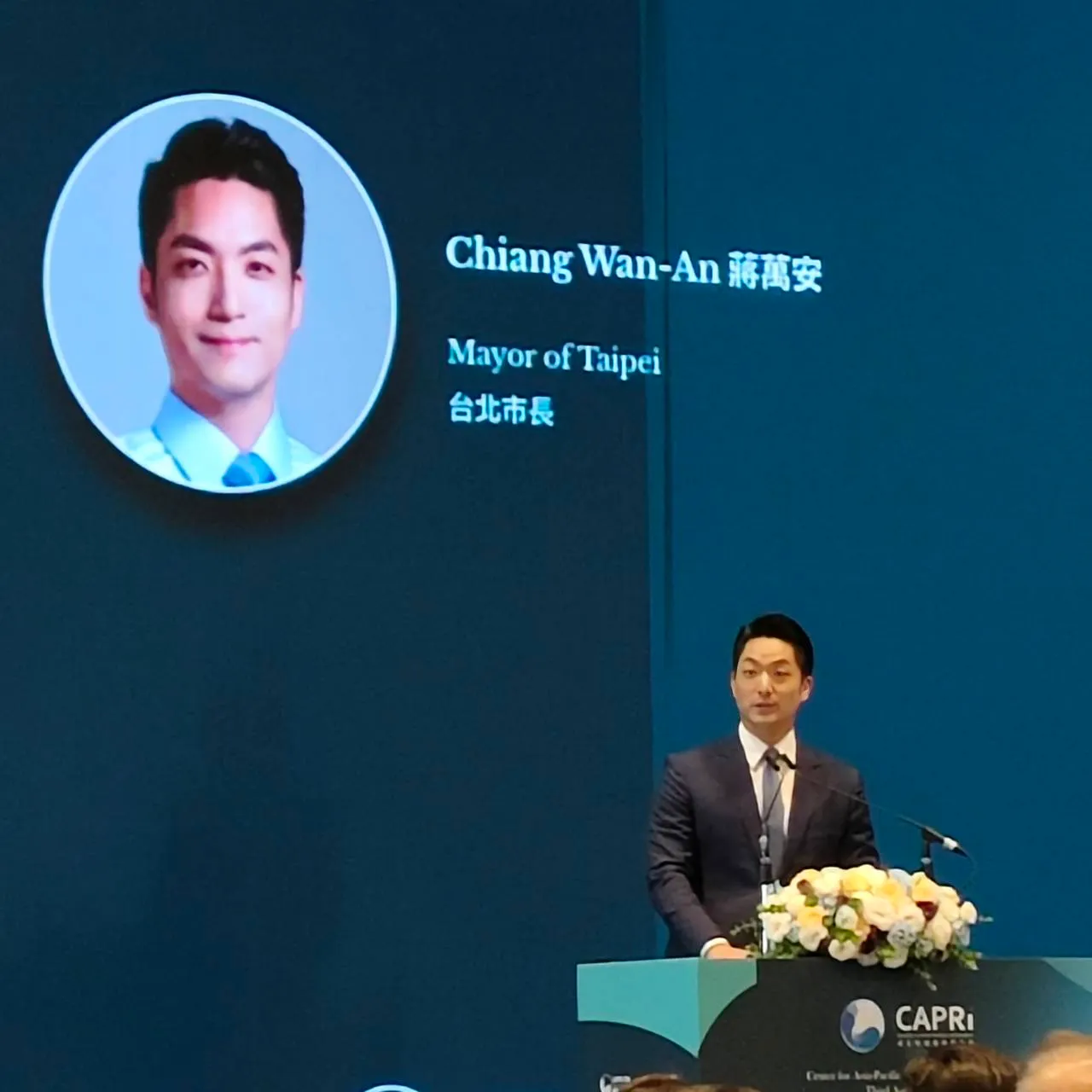
In a rousing closing address at the Center for Asia-Pacific Resilience and Innovation (CAPRI) annual forum, Taipei Mayor Chiang Wan-an announced that Taipei has soared to 8th place globally in the 2025 Happy City Index, a dramatic leap from its 46th position the previous year. The index, published by the UK-based Institute for Quality of Life, recognizes cities that exemplify quality of life, resilience, and citizen satisfaction. Mayor Chiang credited Taipei’s progress to a combination of smart governance, technological innovation, and unwavering democratic values.
“At its heart, [Taipei] is a city for people,” Chiang emphasized. “And our greatest strength is diversity.”

Mayor Chiang opened his remarks by highlighting Taipei’s rapid response to the 7.2-magnitude earthquake that struck Taiwan’s east coast last year. “Within five minutes, Team Taipei was activated entirely,” he said, praising the city’s shift from a centralized emergency center to a mobile, decentralized model. He further announced the launch of a cloud-based disaster response system next month, powered by real-time data and AI forecasting, to enhance preparedness against earthquakes and climate-related threats.
Chiang also underscored major infrastructure upgrades, including a US$216 million investment to improve flood prevention systems. A notable project includes a high-capacity underground detention tunnel in central Taipei, built using MRT-style boring machines to minimize surface disruption. “This is smart infrastructure,” Chiang declared.
In a region marked by geopolitical tension, wartime readiness is a priority. Taipei has added missile strike simulations to its annual drills and coordinated with national authorities to conduct large-scale resilience exercises, blending civil defense with disaster response.
Yet Chiang made it clear that resilience isn’t only physical—it’s digital too. Facing nearly 20 million attempted cyberattacks each year, Taipei allocates 43% of its IT budget to cybersecurity. “An AI-driven smart city...relies on a trustable cybersecurity infrastructure,” he noted.
The mayor shared how technology is being used not just to secure the city, but to improve everyday life. When a central government meal program for schoolchildren faltered, Taipei launched “Taipei Milk Weekly” through partnerships with convenience stores and its EasyCard smart system. Children now tap their ID cards to receive free milk—a move that received an 87% approval rate within its first month.
This initiative, Chiang said, is more than nutrition: “If we can deliver milk, maybe we can use the same system to distribute emergency supplies in crisis.”
Chiang closed by reaffirming Taipei’s identity as a “hot pot” city—rich with diversity, openness, and democratic values. “We host more protests and marches than any other city in Taiwan. That’s not chaos, it’s democracy in action,” he declared, drawing applause.
Taipei’s early support for LGBTQ rights, continued defense of freedom of speech, and commitment to political pluralism, he argued, are not just social virtues but pillars of resilience. “Democracy is Taipei’s DNA,” Chiang said. “It allows us to be open, inclusive, and resilient.”
As he announced the city’s achievement in the Happy City Index, Chiang made clear that it wasn’t just metrics or policies that earned Taipei its new global standing—but a deeply rooted commitment to people-centered governance.
“This remarkable progress is a testament not only to our city’s development,” he said, “but also to the strength of Taipei’s democratic resilience.”